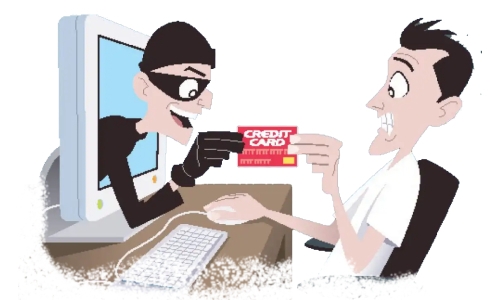Fake social media profiles fuel scams in Bahrain
TDT | Manama
The Daily Tribune – www.newsofbahrain.com
Two numbers surged last year - people infected with the Covid-19 virus and fake social media accounts.
The infections are gradually being brought under control but fake social media accounts continue to rise fuelling scams of various kinds.
The goal of imposter accounts is mainly to access personal information like credit card numbers, phone numbers or other data that can be used to steal money.
These imposter accounts are replete with discounts and giveaways, which appears to be directly coming from brands, but in reality, they are scams targeted to rob money from the public.
Fake social media accounts are everywhere, be it Facebook, Instagram or Linkedin. Last year alone Facebook removed more than two billion fake accounts.
Fake social media accounts are increasing at an alarming rate in the Kingdom as well. The Daily Tribune earlier reported about fraudsters using fake social media accounts to target the online banking and financial transaction network in the Kingdom resulting in money loss for many. Scammers generally target victims by making calls to their mobile phones or sending SMSs.
Upon receiving the call or SMS, data is leaked and money is either transferred to other accounts or used for purchasing various goods online through the payment app already installed on the mobile phone.
Cybersecurity experts have always been highlighting the need to protect Unified Payment Interface (UPI) and online transactions from scammers in light of increasing online payments.
They include not responding to calls and text messages from strangers along with putting up different passwords on different accounts and UPI apps.
The Central Bank of Bahrain, many a time, have carried out campaigns and circulated messages alerting over the possibility of falling victims to online fraudsters.
The newspaper also reported about vice-ring using kids’ pictures posted on social media sites for promoting flesh trade in Bahrain.
The pictures were posted on popular social media groups in the Kingdom. There are many in the Kingdom, who have received threatening calls and harassing texts from fake social media accounts.
A few weeks ago, I received a link...
Speaking to The Daily Tribune, a resident, who is employed with a private firm, shared his ordeal: “I am in charge of recruitment and hence get many calls from South Asian countries. Many job aspirants regularly send their resumes and applications to my WhatsApp number. “A few weeks ago I received a link and upon clicking the link I was connected to a video call, which I instantly disconnected. The next day I received a call from the same number, asking to update my bank details. “I refused to do that and then began a long series of threatening calls asking to transfer money to their Google Pay numbers. They threatened to tarnish my image on social media platforms if money is not transferred. I blocked the number and subsequently, threatening messages came in the form of voice clips.”
“When I spoke about this to many friends and colleagues, I could learn that a good number of them also had such experiences. Our social media accounts are not safe and it could be used for targeting us by these fraudsters.”
Cybersecurity strategist Muhammed Shiras, who is the Lead Auditor, ISACA Member and Business Analyst with YMC Business Solutions, said: “In light of the pandemic circumstances, social media usages have risen tremendously.
All network operators now provide unlimited access to the Internet as part of their bundle package plans.
“As the usage has increased, fraud and misleading news feed over cyberspace has also gone up proportionately. A more vigilant and conscious approach is advised in following and liking posts, pages and accounts.
“One false click can take you to another unknown strange world compensating for your money, privacy and other personal information. Before following any account, try to check their pages, posts, followers, interests etc to verify their authenticity. And never click any malicious links before reviewing the background. Think before you CLICK and keep yourself safe online.”
Related Posts


